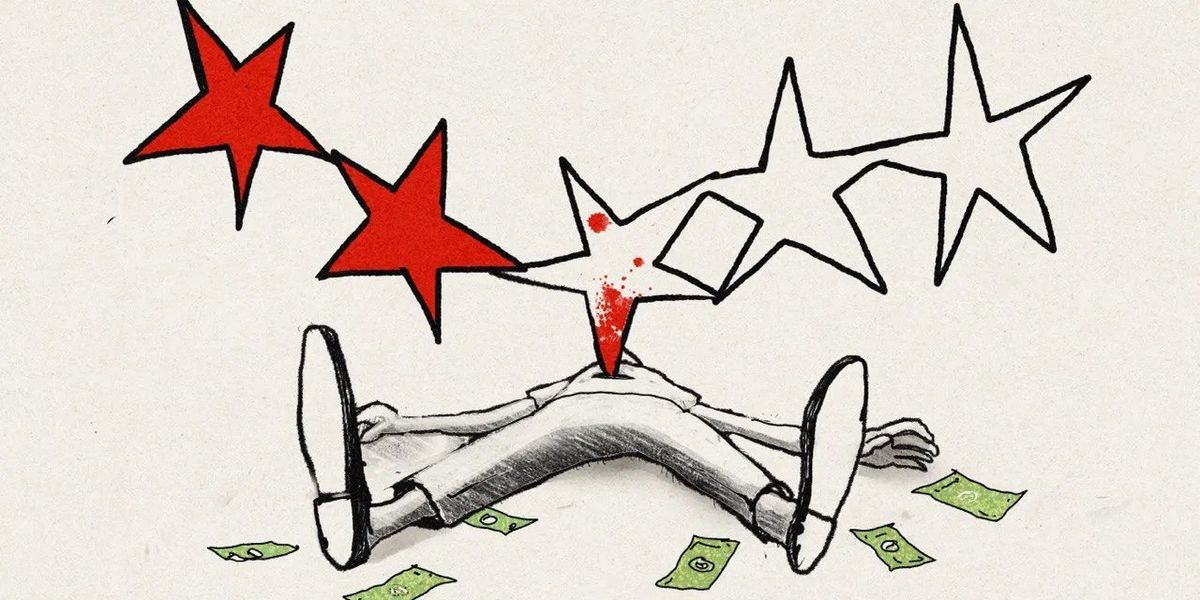
I was walking down an unpaved road with $180 in cash in my pocket, going deeper and deeper into industrial nothingness. I hadn’t trekked into this void on the wrong side of the tracks to buy an experimental drug or pay off a hit man. No, I was reduced to this walk of shame because I had forgotten it was street cleaning day — and now I was on a lonely hike to retrieve my impounded automobile.
I was already brimming with resentment toward the towing company employees I would soon encounter. Sure enough, I was soon faced with a variety of Bostonian discourtesy I was sure rising rents had killed off long ago — a brutishness so strong that it made me grotesquely proud of my city. The ill-mannered clerk snatched my twenties as if I had stolen them minutes before and waved me toward my car. I found it parked, no doubt intentionally, between two large potholes filled with rainwater. A desire to change plans and place a hit after all sank in. Or, if not that, the only form of vengeance the situation allowed: a one-star, or perhaps even no-star, review.
_____
Unsurprisingly, that particular towing company already showed poorly on Google’s review platform. Tales abound of stolen GPS systems, brusque workers, and the inconvenience of the back-alley location. What, I wondered, could possibly make for a positive experience with a towing company — much less this one? But there it was: a five-star opinion, drawing the manager’s grateful reply. “Karen, thank you for the review here at B&B Towing we strive on making people satisfied being in this type of business we don’t get to many good reviews thanks again.” No punctuation, no spell-check. A kind of pity welled up within me. I thought twice about leaving that one-star review of my own.
Like all of us, I know the score: That one deadly star can spell doom. I won’t patronize a bar or restaurant — and certainly won’t hire an electrician or lawyer — without checking reviews on Google first. I know on this count I’m not alone, even as others may prefer Yelp or a similar clearinghouse. But the truth is that in our lives, we often find ourselves interacting with entities without much choice in the matter. I had no choice who towed my car; earlier this year, I found myself waiting eight months for a tax refund without the IRS so much as deigning to pick up the phone; similarly, I have found myself working with obvious crooks while buying a fridge out of a lack of local options and subjected to low-rated Uber drivers at two in the morning because no one else was around to accept my request after the metro stopped running.
In 2016, an iPhone app called Peeple caught the attention of the internet when it launched with the promise to be, well, “Yelp for people.” The idea was that just like your local coffee shop, local people — your neighbors, friends, a guy you went on a date with once — should also be personally subjected to crowdsourced reviews. The public reacted with disbelief and anger to this obviously terrible idea, and Peeple soon disappeared, first from the App Store, then from the world.
But businesses — and their employees — already live in a version of the hell that would have been Peeple, with reviews and ratings playing the role of a demon to whom you’ve sold your soul: vital to your success, instrumental in your failure. Two-thirds of consumers consult reviews before buying a product; positive reviews, in turn, make people three times more likely to make that purchase, according to CBC news.
At a time when online cynicism is hurting scammers’ prospects, review scams can still be a lucrative venture, for both businesses and the scammers themselves. This past summer, various highbrow restaurants around the U.S. saw their reviews suddenly tank. Shortly, they received disgruntled emails from the scammers demanding Google Play gift cards as ransom. Otherwise, the emails threatened, the aggrieved would continue to post a new batch of death-tier reviews every day. (“The fact is that we live in India and see no other way to survive,” the emails read, as reported by Bon Appetit.)
Fake reviews, however, are not only negative. Businesses are regularly accused of pumping fake reviews to increase traffic. As reported by Bloomberg, one estimate found a staggering 42% of Amazon reviews to be fake, inflating the ratings on inferior products. This year, in the first instance of its kind, the Federal Trade Commission settled with the brand Fashion Nova, accused of buying scores of positive reviews and suppressing negative ones, for $4.2 million.
_____
To see how easy it would be to get a stack of fake reviews myself, I joined some Facebook groups that openly offer a forum for people to buy and sell them. In these groups, both positive and negative reviews are fair game. I decided my target would be my hometown public transit service. Over the years, its long wait times and frequent breakdowns have earned me more than enough legitimate reason to whine. Anyway, I thought, it would surely be harder to tank than a struggling small business — even one I hated, like the towing company.
One reviewer quickly got back to me. For two dollars apiece — a price which honestly seemed a bit high — he would draft as many reviews as I wanted and post them to the Massachusetts Bay Transit Authority headquarters. Sure enough, when I checked the profile the next day, five new one-star reviews rose to the top, bringing the total score from a 3.3 to a 3.1. “I not like it,” went the most descriptive — another simply said “Bad.” These were not going to cause a sharp drop in ridership, that was for sure. None of them were even as funny or effective as what seemed to be a very real review, left just the day before, that said: “They should give mbta the Nobel price for the lousy service, in short we are paying people who are incompetent.” Now that’s how to write a zinger.
Unfortunately, even those moribund reviews didn’t last. While the one about the Nobel prize stayed posted, the five that I had paid for disappeared within two days. The MBTA returned to its 3.3-star rating, and I went to my reviewer to complain.
It turned out he was new to this game. He used his earnings from two steady clients to finance his lodging and studies in Pakistan as a fourth-year student. He needed more customers, but it was a start — and easy to do from home to boot. When I asked him whether he regretted the effects of his work, he told me he felt bad but that “this is business.” He continued, “You know everyone needs money and I get money after my hard work. Nobody gives money without work.”
Google, when reached for comment, pointed me toward a blog post that celebrated the company’s efforts during the pandemic to crack down on fake reviews. “Thanks to a combination of machine learning and human operators, we continue to decrease the amount of content seen on Maps that is fraudulent or abusive – in fact, it’s less than one percent of all the content that is viewed on Maps,” the post reads. The representative did not answer my questions about review scammers specifically, or whether the company has changed policies after the restaurant ransom scandal. Nonetheless, to my chagrin, the filters — whether machine or human — had seemed to work perfectly at disappearing each of the five reviews that I myself had purchased.
_____
If all reviews are a waste of time — corrupted by scams, incentivized by businesses, and generally untrustworthy — reviews of the most hated entities in American life should be at the pinnacle of worthlessness. But the hostility toward these places and the lack of a motive to lie make for Google reviews imbued with a poetry born from pure feeling. Near to my own heart, one John Wolfe calls Pat’s Towing in Somerville, Mass., a “dirty business run by toad-like men possessed of a base cunning that they will use to squeeze you for every penny they can.” But even the vilest towing company has fierce competition for hate.
The IRS office in Austin, for instance, sits at a grisly 1.3 stars, and the reviews are filled with complaints of delayed tax refunds and unresponsive staff. One Aissa Aoussar unloads her personal brand of experimental verse in one of the many one-star reviews, along with the last four digits of her Social Security number for anyone on the internet to read: ““my question is if i didnt get refund by next week, iam going to file a smal lawsuit to 9th Court Manchester,NH against your IRS for investigation may be my refund been stolen by government worker or someone using Fraud or abuse.” Add some line breaks and it’s William Carlos Williams.
Rikers Island, the notorious New York City jail, hovers at 3.2, its rating buoyed by parody five-star reviews extolling the view of the skyline. But among them are reviews that are much more self-serious, left, ostensibly, by people who have actually been there. One, written by a man named Dominic, complains of the correction officers’ collusion with certain inmates and the unfair treatment he received there.
One of Yelp’s guiding company “values” is authenticity. The company writes, “Tell the truth. Be straightforward. Over-communicate. No need to spin things.” But what does being “authentic” mean on a five-star scale? We know from being internet users that a three-star review does not mean “acceptable” or “good” or whatever the review engines would have us believe — for that matter, they know it too. Uber drivers, for example, risk getting deactivated from the platform with a rating lower than a 4.6 (though the company has never confirmed the exact number). The real star rating scale for pretty much anything online, it seems to me, is quite different from what the apps tell us when we use them: 4.0-4.2 is fine, 4.3-4.6 is pretty good, 4.7-4.9 is excellent, and a perfect five is more than a little suspicious. Though these particular number breaks are my own, the fact is that we all subconsciously know and converge on something like them, which is also why just a few one-star reviews can sink a business’s chances at success. Frequent and infrequent reviewers alike are all stuck in this ecosystem where anything less than five stars — as customer help-line reps begging for superlative ratings will say — is a failure. Though we avoided the dystopia of Peeple, we skulk amid our necessity to be constantly evaluating — and evaluating, for the most part, dishonestly.
Maybe, then, reviews of towing companies, jails, and IRS offices are closer to that idealistic notion of “authenticity” espoused by Yelp in the first place. No one who writes a genuine review of Rikers Island believes that anything will change there, ever — no manager is jumping into the Google comments to offer a free drink on return visit. Instead, the review system can finally provide what it’s supposed to: a place to be honest, to complain full-throatedly, without any expectation that someone will ever read it or change their mind. There is no hope of convincing people, no risk of bombing search results for a local business that maybe just had an off night. The IRS will continue operating despite its 1.3 rating; my scammer’s five reviews of the MBTA will make no difference to anyone. Is it here, in the internet’s most voidlike spaces, that we can feel most at home?
Those reviews, by the way, are back up. My favorite new one — an allegation? a confession? — reads simply: “Scammer.”
Read More: World News | Entertainment News | Celeb News
TheBlaze








